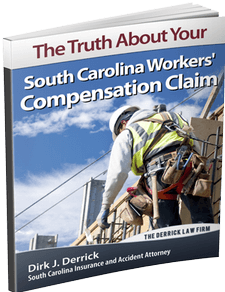Types of CRPS
CRPS-1, sometimes called reflex sympathetic dystrophy (RSD), results from strains, burns, or tears in soft tissues like muscles, ligaments, tendons, and skin. It can lead to chronic arthritis, tendonitis, or bursitis.
CRPS-2, sometimes called causalgia, results from an impact to or penetration of a major nerve group. It might surface as soon as you're injured or remain dormant for months afterward.
Fibromyalgia is characterized by weakness, muscle spasms, and extreme sensitivity to touch or pressure.
Symptoms of CRPS
CRPS symptoms include:
- Swelling and stiffness of joints
- Muscle spasms or atrophy
- Abnormal skin color or texture
- Sensitivity to touch or extreme temperatures
- Burning or throbbing pain in the affected area
- Changes in hair or nail growth
- Contraction of tendons and muscles
If you're displaying such symptoms after you've already been awarded benefits for your original injury, it's not easy to persuade the insurer that you're still afflicted. You might be accused of trying to "double dip" and have your claim for CRPS denied.
CRPS Treatment
Treatment of CRPS, which is usually carried out by a physician specializing in pain management, includes stimulation of the spinal cord, nerve blocks, physical therapy, medication, and psychotherapy.
CRPS Is Hard to Diagnose
The first diagnosis of CRPS dates back to the 1800s, but today there is still no reliable diagnostic test for this condition. Its symptoms vary from one victim to another and often change as the syndrome goes on. The systematic elimination of other conditions for which there are diagnostic tests is often the only way for doctors to reach a diagnosis of CRPS, which can continue for the long term or even for life in some cases. Because you might suffer debilitating chronic pain and require medical treatment for an unknown period of time, it's important that you do everything possible to prove your workers' comp claim for CRPS.
How an Attorney Can Help
If you're still suffering chronic pain and perhaps trying to return to your job or to a "light duty" position after a work injury, you might find it difficult or impossible to stand up to an employer or insurer that disputes or denies your CRPS claim. In such circumstances, a lawyer can help you in a number of ways. Your attorney may assist with the following if necessary:
- Organize and present medical evidence to prove you're suffering from chronic pain
- Introduce statements or testimony from expert witnesses to prove that your ongoing pain is work-related
- Arrange a conference with your employer and the insurance company if your claim is disputed
- Request a review of your claim or a hearing to appeal your claim denial before the South Carolina Workers' Compensation Commission (SCWCC)
- File an appeal with the South Carolina Court of Appeals if your claim is still denied
Having legal representation can show the insurer you're not going to back down.

.jpeg) If you are suffering from chronic pain as a result of a work-related accidental injury or an
If you are suffering from chronic pain as a result of a work-related accidental injury or an 
